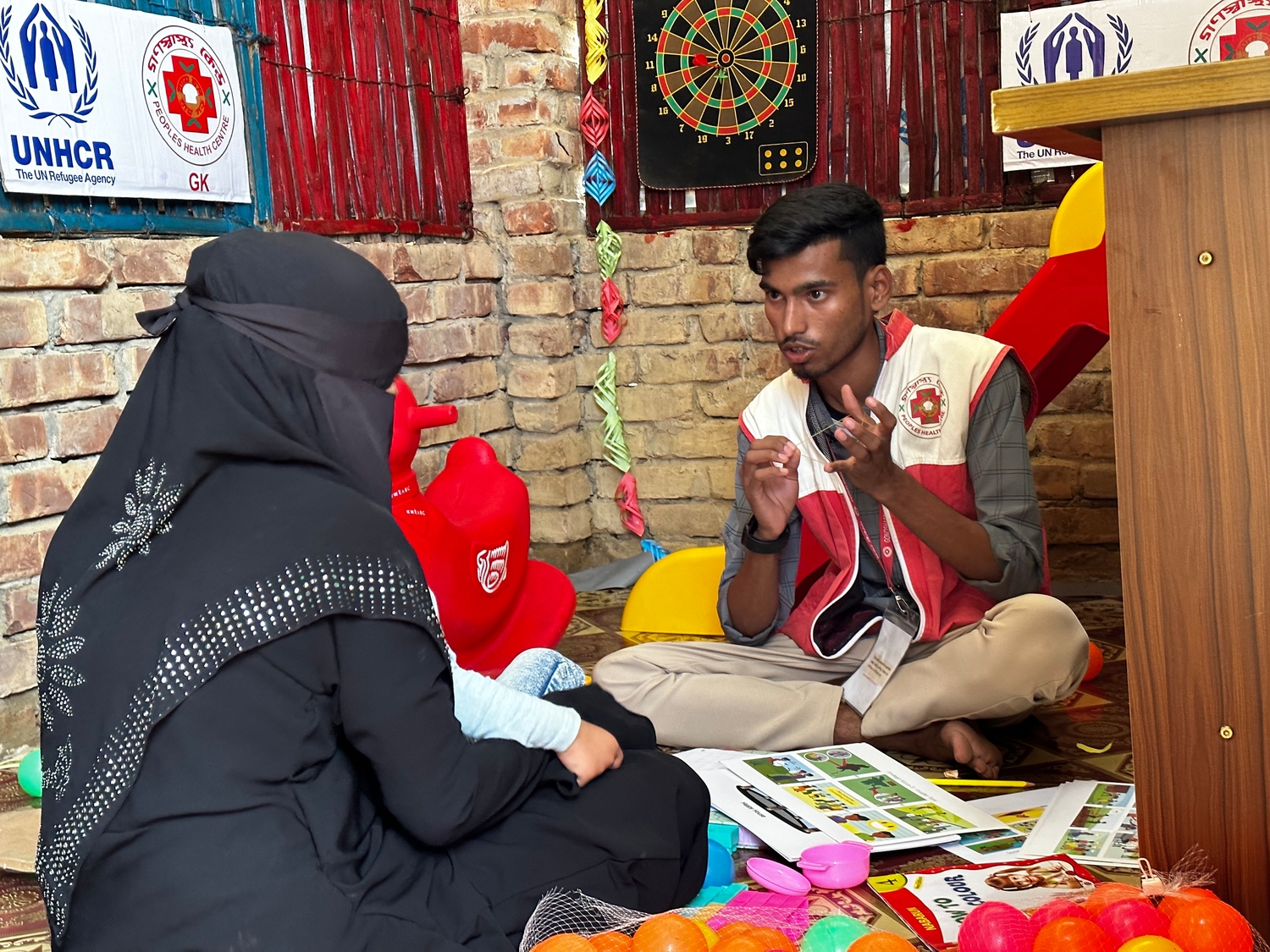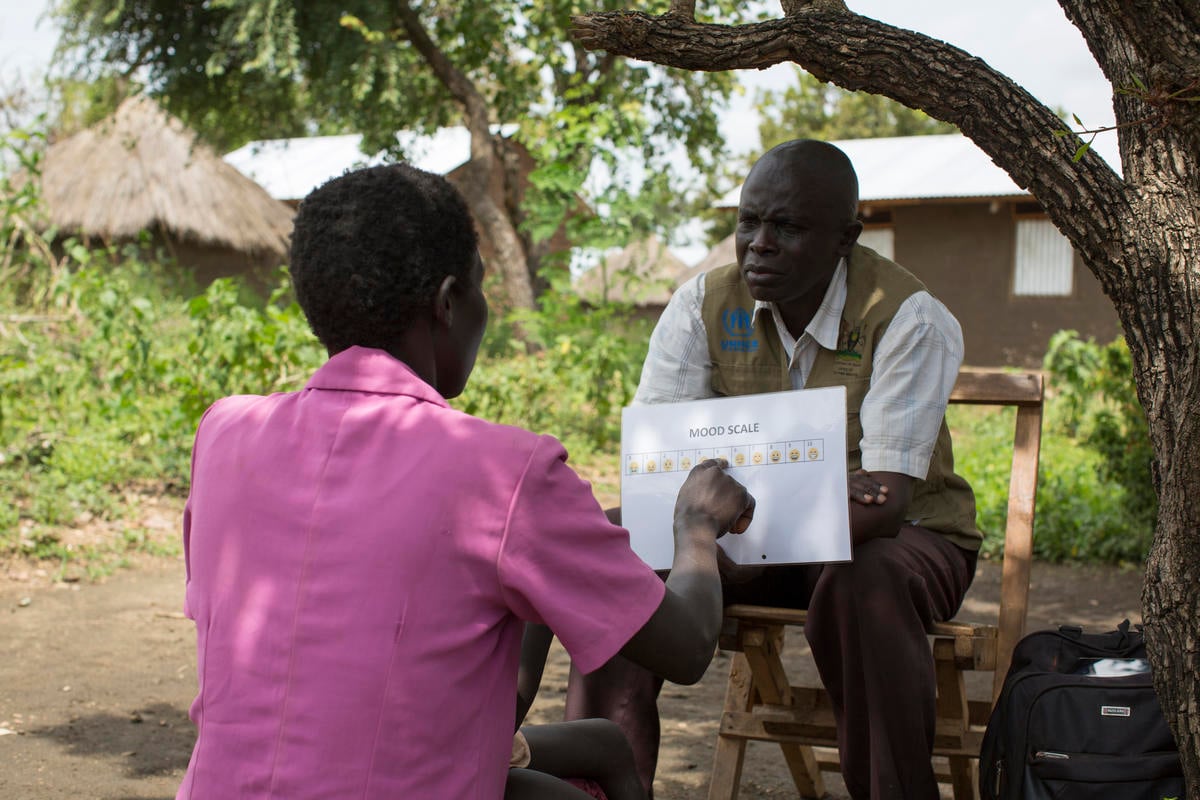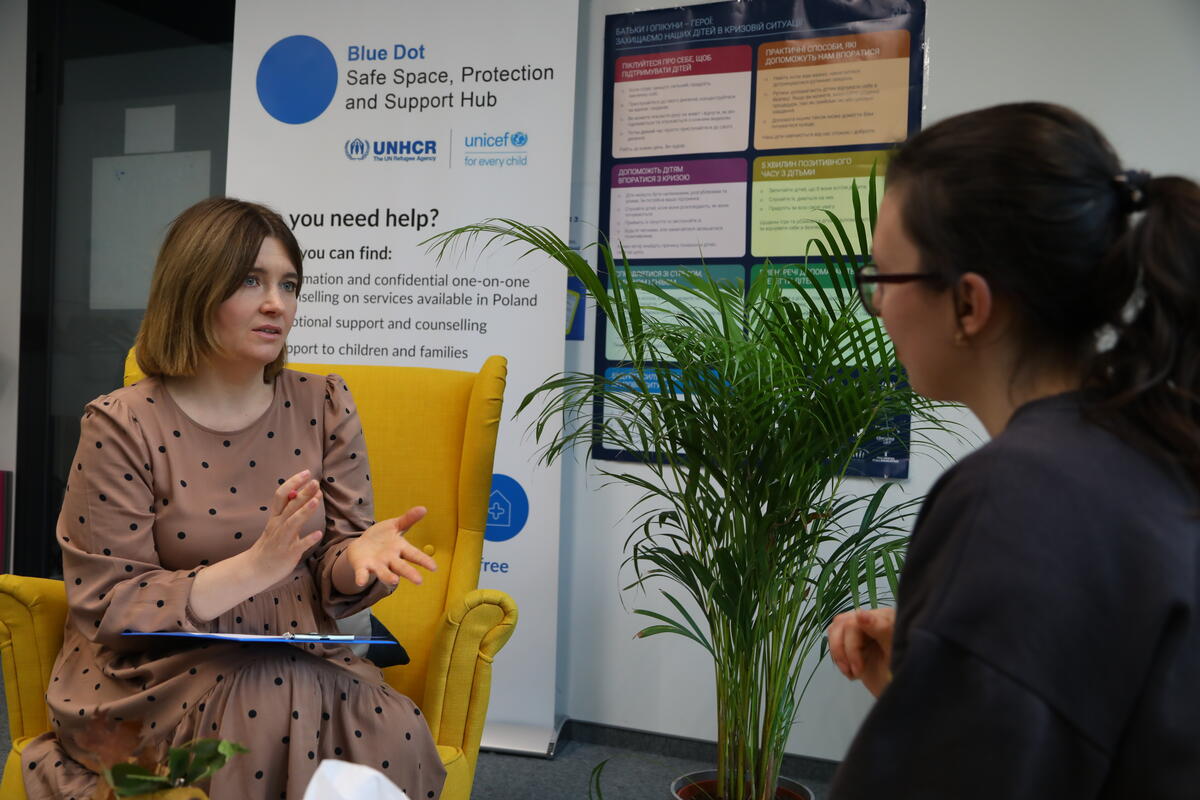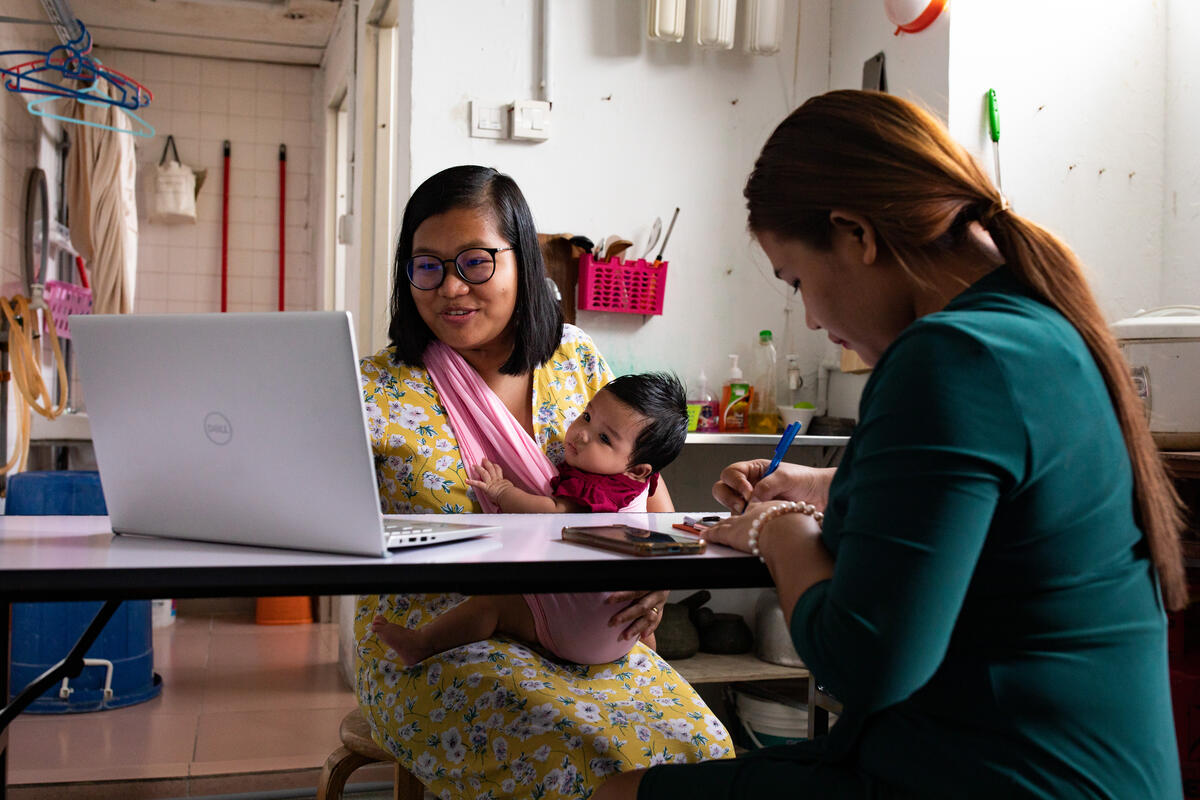Counselling offers Afghan women a safe space to share their mental health struggles
Counselling offers Afghan women a safe space to share their mental health struggles
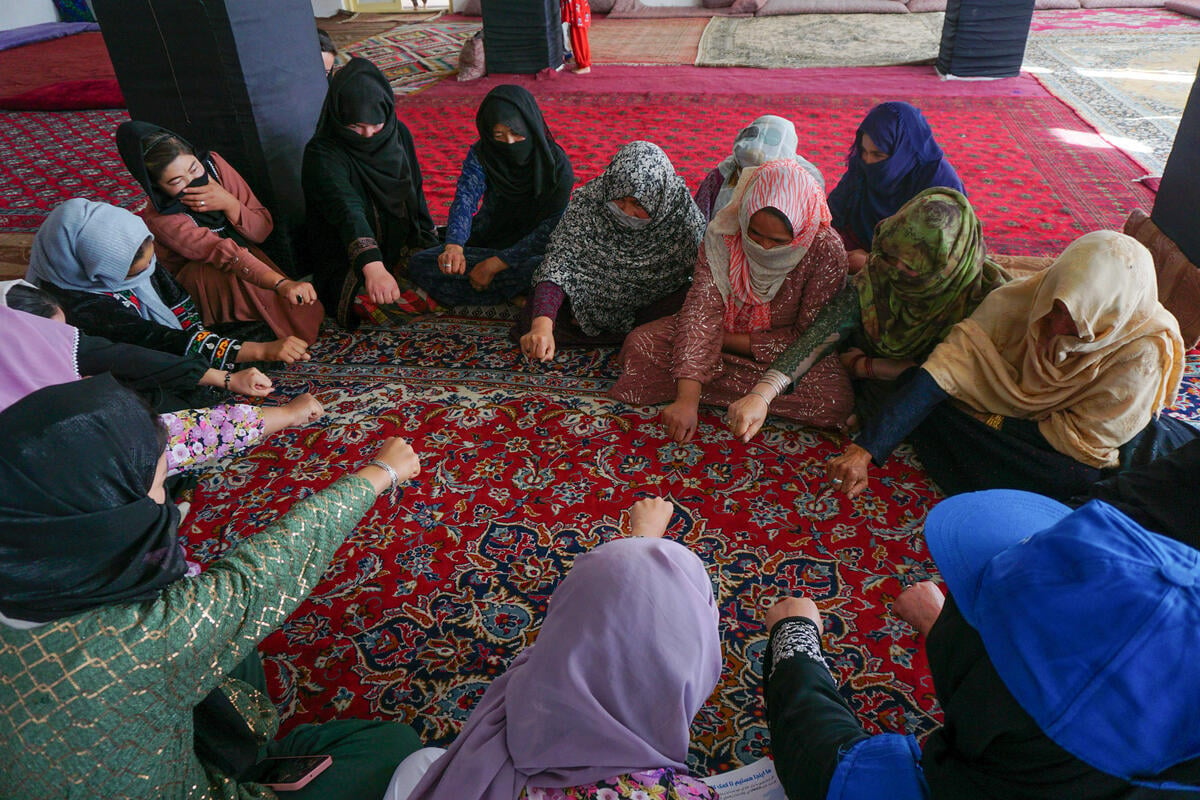
Women take part in a group counselling session at a mosque in Bamyan in Afghanistan's Central Highlands.
Today, she says, she feels like a different person. “My life has changed since coming here for help,” she says. “I’m so grateful. Before, I was hopeless and desperate to a point where I wanted my life to be over. I couldn’t share my problems with anyone else before.”
Psychosocial counselling services like this, supported by UNHCR, the UN Refugee Agency, are providing a safe space for many women and girls, as well as men and boys, to discuss their problems in confidence with trained professionals.
With mental health services still scarce across the country, and stigma surrounding mental health issues in Afghanistan, many feel they have nowhere else to turn for help.
Demand rising
Farzana, who works for UNHCR partner, HealthNet TPO, says that since she started working at the clinic earlier this year, she has seen a 40 to 50 per cent increase in the number of patients seeking help. “The increase is due to several factors: the increasing restrictions on women and girls, high rates of domestic violence in people’s homes and also the overall worsening economic situation,” she says.
The recently introduced Law on the Promulgation of Virtue and Prevention of Vice, which brought in new measures restricting people’s personal conduct, movements and dress, has only added to the pressures women in Afghanistan face. Many feel hopeless, depressed and angry.

Group counselling sessions like this one provided by UNHCR partner, WSTA (Watan’s Social and Technical Services Association) are welcomed by women as a safe space to discuss problems they are facing.
Farzana holds group counselling sessions on specific topics, ranging from anxiety to stress and insomnia. She also runs one-on-one counselling sessions. Being located in a local health clinic enables her to work closely with a community health worker, who disseminates information on mental health and psychosocial issues and available services, as well as alerting her to cases needing help.
Similar programmes are supported by UNHCR in areas across Afghanistan. At a group counselling session in Bamyan, in the Central Highlands, run by another partner, WSTA (Watan’s Social and Technical Services Association), some 20 women sit together, discussing stress management, and noting how their daily lives have become much harder under the new restrictions introduced by the de facto authorities.
“There is a lot of violence at home these days. There are arguments, no opportunities, no jobs; [or] only low-income jobs,” says one participant, Fatima, a 38-year-old mother of four daughters who have not been able to attend school since restrictions came into force barring girls from studying beyond sixth grade. “It is my first time to attend these sessions, and I think it is very helpful. It’s a place where I can come to talk about my problems. There is nowhere else for me to go.”
Another participant, Najiba, 25, started attending counselling sessions after becoming so depressed and fearful that she lost her appetite and dropped out of her midwifery studies, one of the few opportunities left for women. “I had dreamt of finishing my higher education so I could look after the family and pay for our expenses, but when the Taliban came, I lost everything [and] my psychological problems started,” she says. “The sessions gave me hope and the counsellor helped me to find my strength. I decided to restart my education and I’m now studying [midwifery] again.”
Disasters add to needs
According to the 2024 Afghanistan Humanitarian Needs Response Plan (HNRP), psychological distress is affecting more than half of all Afghans, with one in five individuals suffering from more severe mental health issues.
Through its community monitoring work, UNHCR has also identified a widespread need for more mental health and psychosocial support. Frequent emergencies stemming from disasters and the arrival of family members forced to return from Iran and Pakistan have only exacerbated the situation. Trained partner staff were swiftly deployed to provide psychological first aid and emotional support to grieving families when a series of devastating earthquakes hit western Herat province last October. Similar responses were rolled out during floods in several parts of the country in May and July this year.
But the need for psychosocial services continues to far outstrip available services, leaving women, in particular, suffering unbearable psychological pressures in isolation. In an effort to address some of the urgent needs, UNHCR has developed a three-year plan to strengthen mental health services. So far this year, more than 35,000 individuals have participated in individual and group mental health and psychosocial activities.
One of UNHCR’s main goals is to build psychosocial skills within communities. Some 55 Afghan counsellors from two local partners working in 19 provinces have attended workshops to strengthen their skills in counselling and emergency case management.
In Kabul, Razia has no doubt about the benefits of seeking help and says she will recommend it to others. She has resumed her teaching work and has even recently become engaged.
“One hundred per cent I would recommend this service to other women and girls. When I came here, I was really in depression, and I had so many negative thoughts. I couldn’t talk about my situation to anyone before. But after the help I’ve received, I feel totally changed.”


